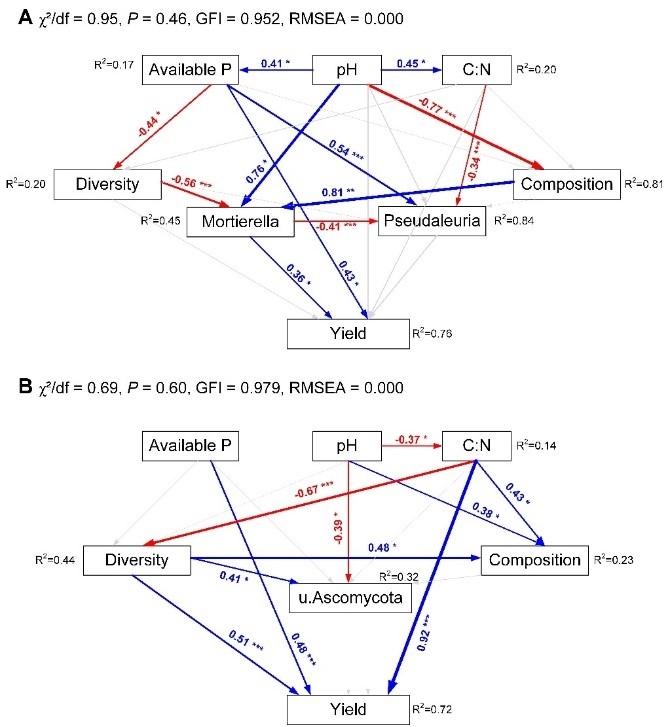Lab Instruments, Box-Type Electric Furnace (KXS Series), China Lab Instruments Yixing Sunny Furnace Co., Ltd. , https://www.yxyytyl.com
Influence mechanism of soil pH fertilization strategy and fungal community on agricultural production
[ Instrument R & D of Instrument Network ] In recent decades, the application of chemical fertilizers has played a crucial role in increasing crop yields, but it also brings about problems such as soil acidification and changes in microbial communities. Therefore, it is generally considered not to have in agricultural production. Sustainability. The combined application of chemical fertilizers and organic fertilizers can not only bring high crop yields, but also alleviate soil acidification and maintain soil microbial diversity, which is considered to be a strategy for farmland fertilization management. However, in the past, many of the problems of soil acidification caused by fertilization have been studied in large-scale areas, and most of them have occurred in acid soils. There have been few studies on acidification of alkaline soils caused by long-term application of chemical fertilizers. In addition, there are few studies comparing the different responses of fungal communities in acidic and alkaline soils to long-term application of chemical and organic fertilizers. Therefore, it is of great significance to systematically study the relationship between fertilization strategy and soil background pH, fungal community and agricultural production.
The research team of Zhang Jiabao, Nanjing Institute of Soil Science, Chinese Academy of Sciences, used seven field trials with long-term fertilization for more than 25 years as a research platform to analyze the crop yield, soil nutrients and fungal communities of the three treatments without fertilization, chemical fertilizer application and organic fertilizer application The structure reveals the effect mechanism of soil pH-based fertilization strategies and fungal communities on agricultural production. The study found that for acidic soils (pH <5.70) in three locations of Jinxian, Qiyang and Shenyang, the long-term application of chemical fertilizers resulted in a decrease in soil pH of up to 1.20 units, and the combination of chemical fertilizers and organic fertilizers significantly increased the soil pH; chemical fertilizers The increase of crop yield under the application of organic fertilizer was significantly higher than that of chemical fertilizer; in addition, the combined application of chemical fertilizer and organic fertilizer led to a significant increase in the relative abundance of the saprophytic fungi Mortierella and Pseudaleuria. In acid soils, the soil pH is directly related to the abundance of Mortierella, and the enrichment of Mortierella has a direct positive effect on crop yield. For the alkaline soils (pH> 8.11) in Zhengzhou, Yanting, Changwu and Fukang, compared with no fertilization, the continuous application of chemical fertilizers for many years reduced the soil pH by only 0.29 units at the most, while the combined application of chemical fertilizers There was no significant increase in soil pH under the treatment of organic fertilizer; the yield of crops treated with chemical fertilizer and chemical fertilizer combined with organic fertilizer was basically the same, and both significantly increased the relative abundance of Ascomycota. Unlike acid soils, the available phosphorus and C: N ratio in the soil directly or indirectly affect the crop yield of alkaline soils, not the soil pH. These results indicate that farmland fertilization strategies depend on the soil background pH, and acid soils must use chemical fertilizers combined with organic fertilizers to prevent soil acidification, while reasonable application of chemical fertilizers in alkaline soils can still maintain high crop yields and soil sustainability. This study provides a theoretical basis for optimizing fertilization strategies in different regions and improving fungal communities to support sustainable agricultural development.
The research results were published in Agriculture, Ecosystems & Environment. The research was supported by national key research and development plan projects (2016YFD0300802, 2016YFD0200107), the National Natural Science Foundation of China (41807017, 41471182, 41530857, 41671228), and the Chinese Academy of Sciences STS project (KFJSTS-ZDTP-054).